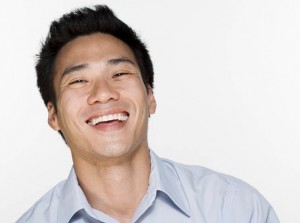I wrote a post about non-binary gender for the Huffington Post, and as part of that I asked some of my friends some questions. Here are the full questions and answers.
If I asked you to describe your gender in one sentence, what would you write?
f: Pretty neutral and tending to be swayed by the person I’m with (in a range of contexts).
Rose Fox: I am female-bodied and genderqueer, with highly variable gender presentation.
Ash: Fluid, intermediate, opportunist, and very much free from gender when I am alone. It’s others who gender me. I just do what I can to work that system in work and social situations.
Xtina: “I don’t particularly care about my own gender. I can’t really help you out there.”
Klepsie: The flip answer would be something like “Not as simple as you think it is”. The sensible answer would be something like “One of the many datapoints which combine to make the person I am.”
Ed: I’ve never really had a gender identity – I can’t decide if it’s more like being ambidextrous, or more like being tone-deaf.
Yoyo: Indecisive tomboy feminine-in-some-ways dandy butch genderqueer woman. I think. Today, anyway.
What pronouns do you prefer?
f: I’d like simply to have a lot to choose from and a neutral.
Rose Fox: In an ideal world where it wouldn’t make anyone blink, “they” or something else gender-neutral. This isn’t an ideal world, and I’m female-bodied with curves that are difficult to hide, so I tolerate “she/her”. The rare occasion when I’m in full-on male drag is when I’d actually most like a gender-neutral pronoun, since… I don’t quite know how to put this… it feels almost appropriative of both maleness and transness to say that I ever feel male. I have moments of desperately wishing I could have a male body, but it’s not at all the same as being male-identified. That said, I do love being called “sir” by baristas, waiters, and others who glance at me and think I’m a guy, and I love those very few moments when I actually pass as male, just as I love putting on ballgowns and pearls. Would it make my day to hear “They look really stunning in that ballgown”? It sure would.
Ash: I’m not offended by any of them, assuming they are not said with sarcasm, but I feel especially pleased when people use the singular form of “they”.
Xtina: I’m okay with female pronouns, and don’t ask people to use otherwise, really. (I have anxiety.) I prefer the singular “they” and suchlike.
Klepsie: Ones appropriate to my presentation; but if people make genuine (as opposed to deliberate) errors I no longer get bent out of shape.
Ed: I don’t mind. It’s nice to get something other than the usual (which, for me, is ‘she’).
Yoyo: “She”/”her” – but am also perfectly happy with “zie”/”hir” or similar.
Do you think most people do have a binary gender, or is it just that most people never think about it?
f: I think most people do. But I also think some of us don’t think about the weird dissonance we feel because we assume others feel it to until it becomes clear they don’t.
Rose Fox: I have no idea and try not to speculate about this sort of thing. I wouldn’t want anyone speculating about my “real” gender or suggesting that I just haven’t thought hard enough about how to define myself, after all.
Ash: I don’t know. It seems to me like a matter of social conditioning (no more or less than whatever social conditioning lead me to be genderqueer – I’m not claiming to be “right” in any sense) but a lot of trans people, and indeed cis people who bother to think about such things, say they have an innate sense of their gender and their social conditioning may only have confused them because it was in such contrast. I’m not in any position to argue with their reality. If that’s how it is for most people, I accept it.
Xtina: I think gender is so embedded in everything that it’s super-hard to figure out where everything comes from and how everything goes. I mean, we start using gender-specific language when children are born, for heaven’s sake. “Oh, how [strong|sweet] little [Johnny|Suzie] is!”, respectively. It’s unsurprising that most people don’t think of it; it’s hard to tell if we are really mostly binary-gendered, or if we’re just really really good at enforcing gender.
Klepsie: I think most people do, but I also think that there are more people who don’t than currently are doing anything about it.
Ed: A bit of both – if everyone thought about it more, more people would probably identify in more complex ways. If you made everyone in the world think about their socks for ten minutes, then many people would probably decide to buy more interesting socks. But loads of people would still identify as men or women (and most people would stick with their existing socks).
Yoyo: Yes and no… I think there’s a lot more fuzzy grey area than most people stop to think about, and once I’d stopped to think about it, it became a whole lot more fuzzy. I think the majority of people fall comfortably into one of the two most well-known ballparks, though, if you’ll excuse the terrible mixture of metaphors.
Do you prefer to date people who are also non-binary-gendered, or doesn’t it matter?
f: Yes.
Rose Fox: Anyone I date needs to not just accept but enjoy all my different ways of presenting myself. They need to be comfortable telling me that my tie is crooked and that my earrings don’t really go with that dress–and, for that matter, that my tie doesn’t really go with that dress. I have found a very few, very wonderful binary-gendered people who are completely cool with this and I adore them to bits. My husband is male-bodied and male-identified and has been immensely supportive and loving without pause or question for ten years and counting.
Anyone I have a sexual relationship with needs to be bisexual/pansexual/queer, because my sense of my own sex and gender shift from day to day and of course that affects how I feel about my body and how I want others to treat my body. It’s not necessary that they also be genderqueer or gender-variant, though that can be a lot of fun!
That said, my relationships with gender-variant people are tremendously important to me not least because they know something of what it’s like to think and feel the way I do. Empathy based on shared experience is a fundamentally different thing from supportive acceptance. So I certainly seek out other genderqueer and gender-variant people to become friends with, and sometimes those friendships lead to romantic and/or sexual relationships, as friendships do.
Ash: It doesn’t matter, as long as there’s no pressure to always embody the gender expression(s) they find most attractive. That makes me feel objectified. I’d take someone like that as a lover if they paid me but I’d never let it progress into a relationship.
Xtina: It doesn’t… entirely… matter to me. I don’t tend to date people who are extremely on either end of an axis (or whatever the fuck that thing is called — pole? side? whatever), because I am already extremist cat, and cannot deal with more of the same. So I’m unlikely to date someone who is Really Feminine or Really Masculine, but I’m also unlikely to date a fierce anarcho-capitalist, so.
(The ellipses were because I’m starting to be uninterested in dating men. Cultural programming isn’t entirely their fault, but I’m kind of tired of dealing with it.)
Klepsie: Yes, I do prefer to date people who are non-binary-gendered, because they understand me better (and vice versa). However, I would like this to be less of a factor, because I’d like there to be general understanding of gender as an issue to the point where it becomes a non-issue.
Ed: I don’t mind. I quite fancy people who do their gender a bit differently.
Yoyo: It doesn’t matter. I prefer to date people who get it, but that’s not necessarily linked to their own gender identity.
Is your gender important to you? Or does it matter more to other people than it does to you?
f: Matters more to others, and matters to me mostly because of the assumptions people make.
Rose Fox: It’s important to me that I be able to express my gender and genderqueerness. I would probably feel bereft if I woke up one day and realized my gender had settled down at some point on the conventionally acceptable female-presenting end of the spectrum. So in that sense, yes, it’s very important to me and it’s a significant part of my identity. On the other hand, if I weren’t such a statistical outlier, and if the culture I live in were generally more accepting of gender-variant people, I don’t know that I would feel quite as strongly about it. I’ve had to fight for it and that necessarily creates a degree of attachment.
Ash: Ooh. Both I guess, depending on the circumstances. It’s more other people and organisations who can’t deal with me as I am who cause me the biggest problems. But I’d be lying if I didn’t have confused days where I wonder how much compromise I’m prepared to make to keep a friendship, work contract, etc.
Xtina: It matters more to others than to me. I’m more -neutral than -queer. (And more gender-apathetic than anything, when it comes to myself.)
Klepsie: It is less important to me than at any previous point in my life, and I’m happy with that.
Have you had to deal with a lot of hassle because of your gender/lack of gender? E.g. harassment, bureaucracy, bewilderment?
Ash: All of those, and physical assault, and death threats… not on a regular basis but enough to know it’s pretty much passive suicide entering certain places at certain times of day.
Rose Fox: I’ve never been outright hassled, because I live in New York City and people here pretty much don’t blink at anything. I’ve confused some people, and I’ve gotten occasional comments that I found borderline offensive but were probably just an expression of the other person’s confusion and discomfort. Bureaucracy hasn’t been an issue because I haven’t made it an issue, other than yelling at a lot of companies that require me to label myself “male” or “female” when filling out forms.
When I started getting my hair buzzed, I actually found that the incidence of street harassment dropped dramatically from the days when I was presenting as a conventionally attractive woman. Women get catcalled all the time because a lot of men treat a presentation of femininity as a statement of sexual availability. As soon as I dispensed with my hair – my most feminine accessory – I became insufficiently feminine/female to be of interest to those men.
That said, in most ways it’s very easy for me to pass as conventionally female, and I’m not particularly flamboyant, so I don’t get a lot of hassle for being a weirdo or a pervert. If anything has driven me to be more outrageous and overtly outside of the binary, it’s a desire to support and show solidarity for other genderqueers whose preferred presentation draws a lot of negative attention. That’s one of the reasons I buzzed my hair. I don’t want to pass as conventionally female. I want other queer and genderqueer people to know I’m “family”, and I want to diversify the world that binary-gendered people see, to make it harder for them to pretend we don’t exist or are all dangerous loonies.
Xtina: Not particularly. I am still female-bodied, and I use the female pronouns (as noted above), and I tend to at least try to “pass”, as it were, when I go on job interviews. When it comes to personal stuff (rather than work stuff), I mostly get “huh. okay.”.
Of course, I live in Portland, OR, USA, land of the weird, so.
Klepsie: I have been very fortunate in undergoing very little “hassle” (as you put it) because of my status. I don’t know whether this is simple good fortune on my part, or whether my general approach of “matter of factness” is a winning stratagem, or whether my being white and middle class has saved me from the troubles that some people experience, or what. I am quite aware that many others, especially those older than me, have had a much tougher time of things, and I have nothing but respect for those who’ve had a harder row to hoe than I have.
Ed: People get flustered when they identify me as a chap and then correct themselves – I used to say ‘Don’t worry, I don’t mind,’ but that didn’t seem to make people feel less embarrassed!
I get some abuse, but I suspect that’s because I look ‘like a lesbian’ (I wear men’s clothes a lot) – or, indeed, like a gay man (I kiss my boyfriend when I’m looking like a bloke).
I’m very open about it, but because people have rarely heard anything similar, it’s hard to ‘come out’. That’s good and bad – it’s more likely to be brushed off as a joke, but if people listen, I get more chance to explain how it works for me.
Yoyo: Some; not a lot. A little bit of hassle based on my appearance, and occasional embarrassment from strangers who read me as male and then realise that wasn’t quite right. Some bewilderment from acquaintances who live in the mainstream.
Do you think it would damage children to be made aware that some people are not uncomplicatedly male or female?
f: No.
Rose Fox: A friend of mine has a delightful young child, M, who drew a picture of “mom’s friends” for school. M explained to her fellow classmates that the person with the short hair is Rose, who is a girl, and the person with the long hair is Dave, who is a boy. The five-year-olds had no problem with this. Why should they?
Another friend’s nine-year-old, Y, met me shortly after I’d buzzed off all my hair. “You look like a boy!” Y declared. “Thank you!” I said. Over dinner, I mentioned something I was doing that’s culturally male-coded, and Y exclaimed, “Wow, you really ARE like a boy!” I replied, “That’s right: a boy who likes to knit and wear dresses.” Other than that, gender was not at all a topic of conversation, and Y seemed perfectly comfortable hanging out with me and chatting about subway trains and origami and other items of mutual interest.
A third friend introduced me to a genderqueer teen, A, who was delighted to meet a genderqueer adult. Gender-variant kids desperately need role models and mentors because we’re almost completely absent from media and cultural narratives. I was very pleased to be able to give A advice and reassurance.
So no, of course I don’t think my mere existence poses a danger to children, nor do I think I should somehow be hidden away from them in order to protect their fragile little minds. They don’t know anything about sex or gender until we tell them, so why shouldn’t we tell them the whole story? All this “protect the children” nonsense is really about protecting adults who are uncomfortable admitting to the existence of anything outside the gender binary.
Ash: So far, I think my son had FAR worse things to worry about such as various family members who sometomes use drugs and alcohol to excess. Maybe he will come to me troubled and/or with lots of questions in future. Can’t see that education could fail to help foster a more peaceful and understanding community in future.
Xtina: Do I think it would damage children to be made aware that sometimes, life is not straightforward black/white easy-peasy simple times always and forever? No, I do not.
Although I kind of want to see something based on that now.
P: It’s time I told you something — people, sometimes, get divorced.
C: *head explodes*
P: And some people aren’t cat or dog people!
C: *meltdown*
P: Finally… I saved this for last, because this is huge, but… not everyone works in the corporate world.
C: *expires*
Good lord, anyhow.
Klepsie: No more than it would damage them to know that some people are mixed race, or bisexual. The vast majority of things in life which are presented dualistically are in fact not so, and children are going to learn about these things one way or another — why not make sure that they get accurate information instead of having to rely on playground gossip?
Ed: I think it would be pretty reassuring – loads of kids worry about not being a girl/boy in the right way, not fitting in. Knowing there’s lots of ways of being a man, or a woman, or neither, would be a relief, I think.
Yoyo: No.
If you could make one gender-related change in the world, what would it be?
f: Voices. To render voices gender neutral somehow.
Rose Fox: I would love to see unisex single-occupancy restrooms become ubiquitous in public places. Unisex multiple-occupancy restrooms are great in theory but problematic in reality; our culture just isn’t ready for cis, trans, and genderqueer people of all genders and sexes to share that type of intimate space. Unfortunately, when the only options are male multiple-occupancy and female multiple-occupancy restrooms, that means that trans and genderqueer people have literally nowhere safe to go. And there is nothing more pointlessly binary-enforcing than two identical single-occupancy restrooms, one labeled M and the other labeled W. Unisex single-occupancy restrooms remove the concern of sharing intimate space with someone of a different sex or gender, and don’t require those of us outside the binary to label ourselves just so we can pee.
Ash: The US passport agency should catch up with Australia and allow the x (=other/not declared) gender on its passports.
Xtina: I’d make it less important, across the board.
Klepsie: I really don’t know, other that to say something vague and woolly like “People should get over it”.
Yoyo: (I suspect the answer to this would be different on different days and at different times…) Removal of gender markers from e.g. passports, driving licences, and doing away with the (internet age) assumption that everybody has to have a title – and making a gender-neutral title freely available to all who wanted to use it.
(You can find more information about all this, and further links, at Practical Androgny. I will soon be following up this article with another one looking in more depth at these issues, including an interview with Nat Titman of Practical Androgny.)





